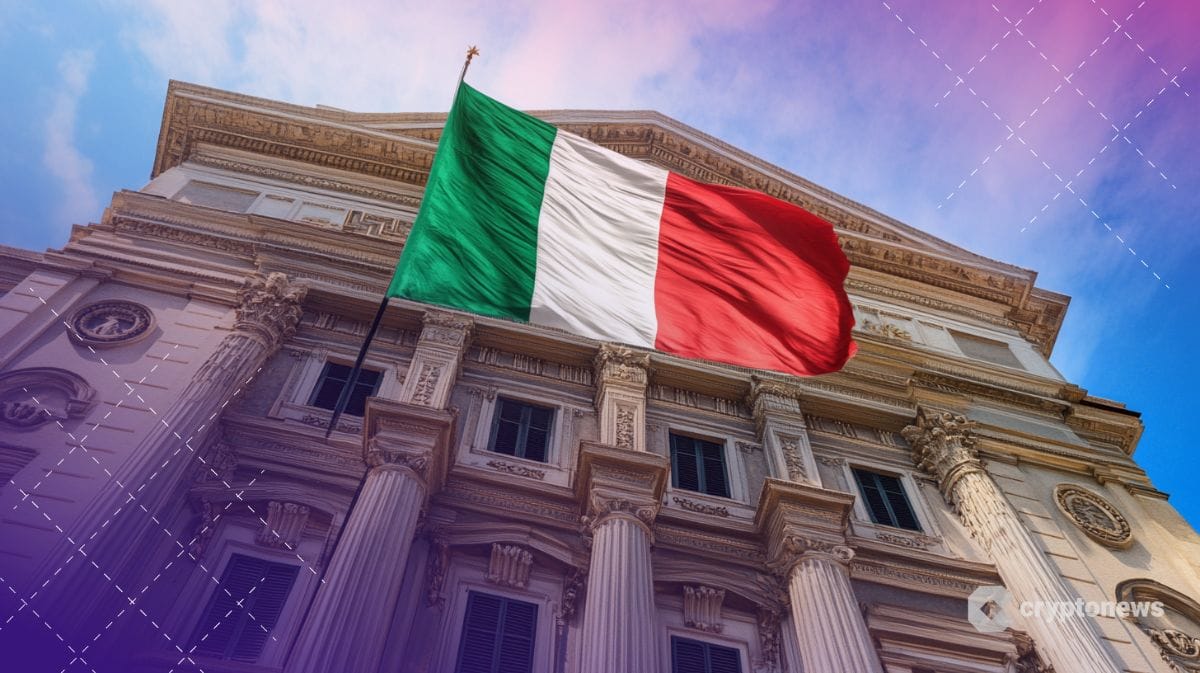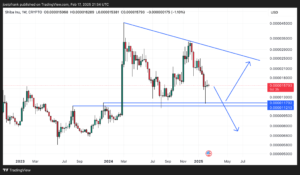Last updated:
 Why Trust Cryptonews
Why Trust Cryptonews

Italy’s central bank and securities regulator are in active discussions with crypto service providers to ensure robust financial and cybersecurity safeguards, according to Bank of Italy Governor Fabio Panetta.
Speaking at the 31st Assiom Forex Congress on Feb. 15, Panetta addressed key concerns related to digital finance, cryptocurrency regulations, and cybersecurity risks.
He noted that the global crypto ecosystem is under increasing regulatory scrutiny due to its potential links to money laundering and broader financial stability concerns.
Key Differences Between European and U.S. Crypto Regulations
Panetta noted the contrast between European and U.S. regulatory frameworks.
He pointed out that Europe has introduced the Markets in Crypto-Assets Regulation (MiCA) to establish clear guidelines for the industry, while the U.S. continues to regulate cryptocurrencies on a case-by-case basis, depending on whether assets are deemed securities.
He also referenced the Trump administration’s recent executive order on digital financial technology, issued on Jan. 23, which signals a more open approach toward integrating cryptocurrencies into the financial system.
Panetta warned that regulatory discrepancies between Europe and the U.S. could be exploited by crypto operators, potentially undermining financial integrity.
“These regulatory divergences between the United States and Europe will need to be carefully assessed once the U.S. authorities’ position becomes clearer, in order to understand their international implications,” he stated.
The Bank of Italy is working closely with the Commissione Nazionale per le Società e la Borsa (Consob), Italy’s financial markets regulator, to evaluate risks associated with digital assets.
The two entities have flagged liquidity risks as more users turn to online platforms for deposits and withdrawals.
To address these concerns, they are in discussions with crypto firms looking to operate in Italy.
“Banca d’Italia’s task is to ensure that these entities have adequate safeguards in place to manage strategic, operational, and financial risks, as well as risks linked to money laundering and the circumvention of international sanctions,” Panetta stated.
Additionally, Panetta cautioned against the rise of digital tokens issued by major tech companies, arguing that widespread adoption of such assets could threaten the role of traditional banks.
“Commercial banks would risk losing an important part of their operations,” he warned, emphasizing the need for coordinated global regulation.
Italy Enhances Crypto Market Surveillance
Last year, Italy took measures to bolster its oversight of cryptocurrency markets in line with the MiCA regulatory framework.
These steps aim to enhance surveillance, counter insider trading, and prevent market manipulation within the realm of digital assets.
The new decree introduces stringent measures to mitigate risks associated with cryptocurrencies.
It includes substantial fines ranging from $5,400 to $5.4 million for offenses such as insider trading, market manipulation, and unauthorized disclosure of confidential information.















